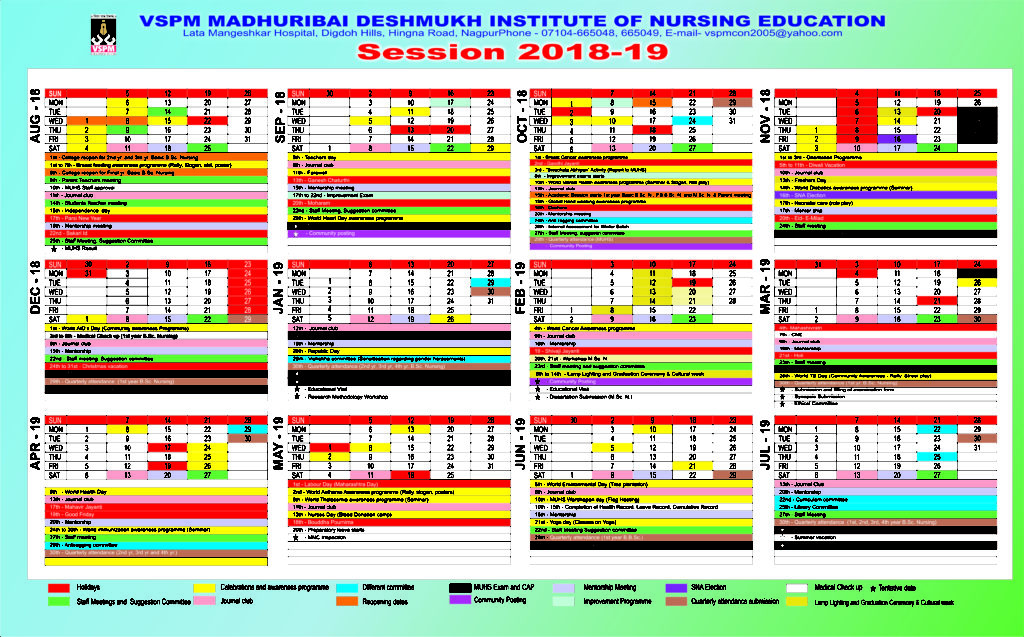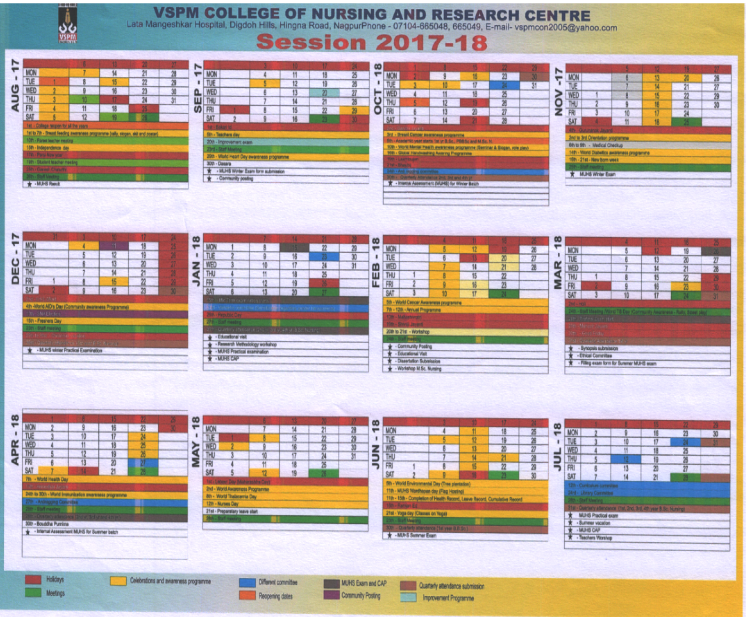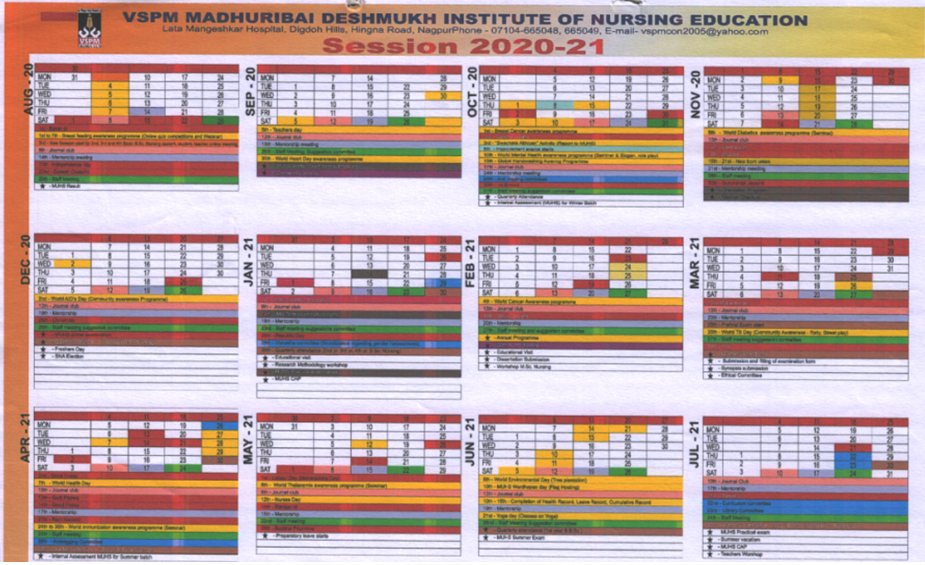Academic Calender
Academic Calender
Policy
Program Outcomes
Student survey form
All Labs
Academic Calender

Policy
POLICY OF COLLEGE FOR SLOW LEARNERS.
The Institute practices a robust student academic counselling process. During the time of admission Principal interacts with the parents and the student to assess their need and aspirations. Further during the course of study group of students are assigned to a faculty for counselling.
- The counsellors monitor academic performance and interact frequently to understand and assist any student with issues that affect their ability to learn or impede their academic success.
- The institute has a system to communicate performance and attendance of students to parents regularly. A set of 20 students are assigned to a faculty as mentor and personal and academic care of the student is taken care of by the corresponding mentor.
- The institute has provide extra library & class hours to slow learners & maintain separate time table.
- The institute has make a leader to a student in each batch for slow learner who is rank holder of his/her batch or above 75% mark, who one can solve the difficulties related the syllabus of slow learner.
- Care is taken by faculty in monitoring the performance of slow learners. Faculty members do periodic interaction with parents about the performance of slow learner.
- Learning material prepared by subject handling faculty members is verified by the expert committee.
- Departments conduct remedial classes, provide course notes for students especially the slow learners and those students who are at the verge of dropping out due to arrear subjects.
- Such students are given regular class tests in order to improve their performance in the university exam. Further faculty members revise the tough topics as per the students requisition and provide university question bank and discuss the way of presenting the answers in the exam to score marks.

Process to bring improvements in slow learners
Extra classes are organized to clarify doubts. Critical topics are re-explained for better understanding by the students. Appropriate counselling with additional teaching is
Program Outcomes
Program Outcomes, Program Specific Outcomes, Course Outcomes
M.sc. Nursing.
Programme Outcomes
A student upon successfully qualifying in the master’s degree in nursing should be able to
- Explore research as evidence for enhancing and changing practice
- Discuss the health strategies in promoting, maintaining and restoring health and well-being
- Demonstrate proficiency in written, verbal and digital skills at individual and collaborative levels.
- Apply critical thinking skills and ethical decision making required for advancing practice.
- Demonstrate the ability to undertake independent learning activities.
- Value the contribution of research in advancing practice in the provision of quality care
- Evaluate leadership and management skills for working in collaborative teams in the provision of quality outcome
- Recognize the need for the advancement of professional practice through contributions to education administration, health care policy and knowledge development.
Programme Specific Outcomes
- Uses advanced assessment, diagnostic reasoning, evidenced based interventions and evaluation skills for improving client health outcomes
- Applies research outcomes to improve practice outcomes within the practice settings
- Supports quality, evidence based safe and cost-effective health care
- Demonstrate skill in conducting nursing research, interpreting and utilizing the findings from health related research
- Demonstrate leadership qualities and function effectively as nurse educator, nurse specialist and manager
- Critically evaluate various educational programme in nursing
- Develop new roles to the changing needs of the societies (e.g.) in practice, education and research
- Demonstrate expertise, advanced knowledge and mastery in an area of specialized nursing practice.
Course Outcome
- At the end of the course the student will be able to practice direct and indirect care roles, manage care to achieve quality, cost effective and ethical outcomes in the delivery of health care for individuals, families and populations.
- Practice nursing reflectively, guided by theory, based on best evidence and integrating creative and critical thinking.
Program Outcomes, Program Specific Outcomes, Course Outcomes
B.B.Sc.Nursing&P.B.B.Sc. Nursing.
Programme Outcomes
A student upon successfully qualifying in the Bachelor’s degree in nursing should be able to
- Assume responsibilities as professional, competent nurses and midwives in providing promotive, preventive, curative and rehabilitative services.
- Make decision in nursing situations.
- Protect the right and facilitate individual and groups in pursuit of health.
- Function in the hospital, community nursing services and conduct research studies in the area of nursing practice.
- Assume the role of teacher, supervisor and manager in a clinical / public health settings.
- Participate in the change process to improve system based practice in the provision of safe, quality nursing care.
Programme Specific Outcomes
- Apply knowledge from physical, biological and behavioral sciences, medicine including alternative systems and nursing in providing nursing care to individuals, families and communities.
- Provide nursing care based on steps of nursing process in collaboration with the individuals and groups.
- Demonstrate critical thinking skill in making decisions in all situations in order to provide quality care.
- Provide health services in line with the national health policies and programmes.
- Practice within the framework of code of ethics and professional conduct.
- Communicate effectively with individuals and groups and members of the health team to promote effective interpersonal relationships.
- Demonstrate leadership and managerial skills in education clinical / community health settings.
- Conduct need based research studies in various settings and utilize the research findings to improve the quality of care.
- Masters relevant professional tools, techniques and procedures.
- Show ability and motivation for lifelong learning, perform evidence-based work.
Course Outcome
- At the end of the course the students will be able to practice high quality nursing and be critical reflection in the practice of their profession in various health care settings and educational institutions.
Student survey form
All Labs

























































